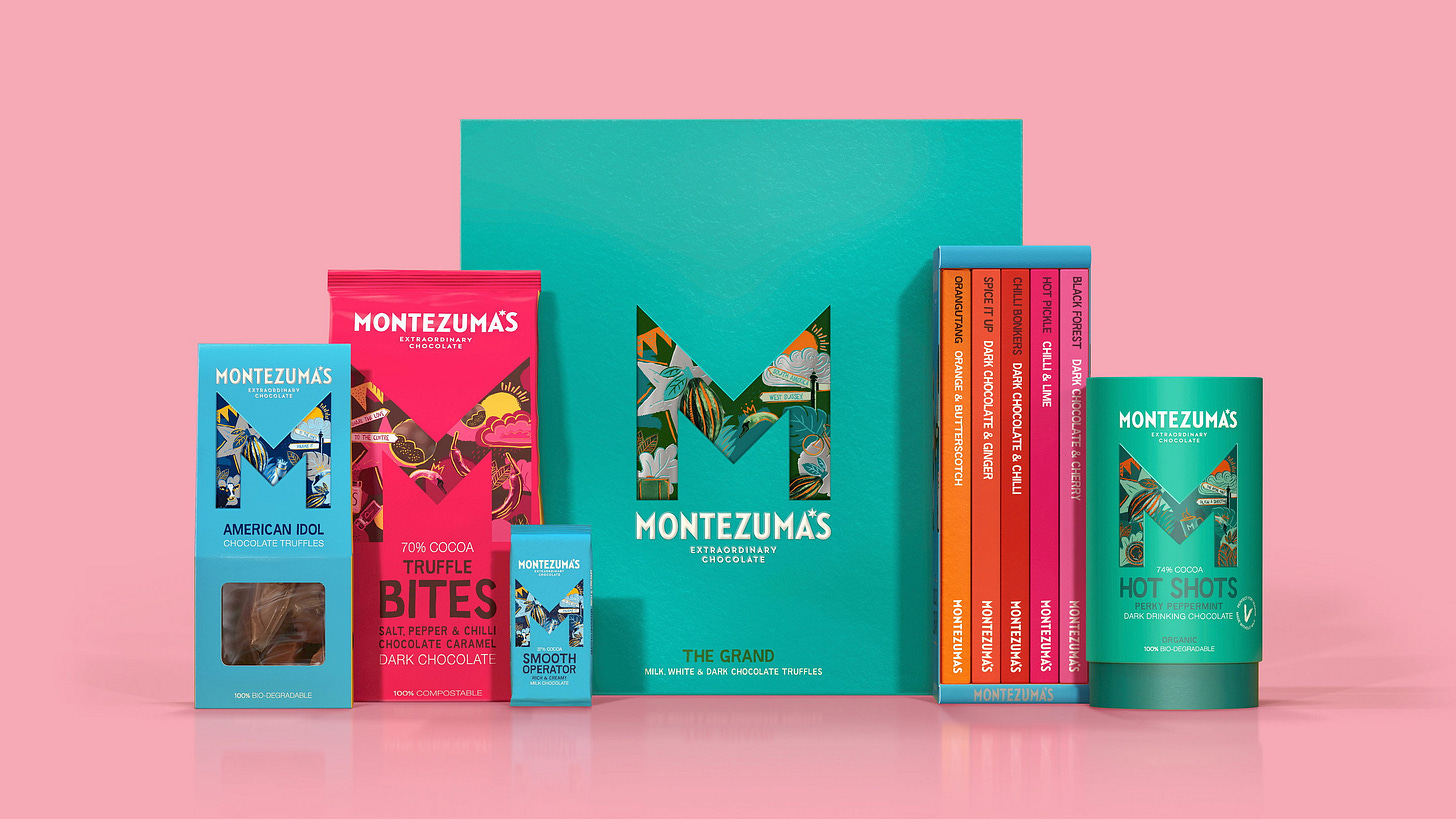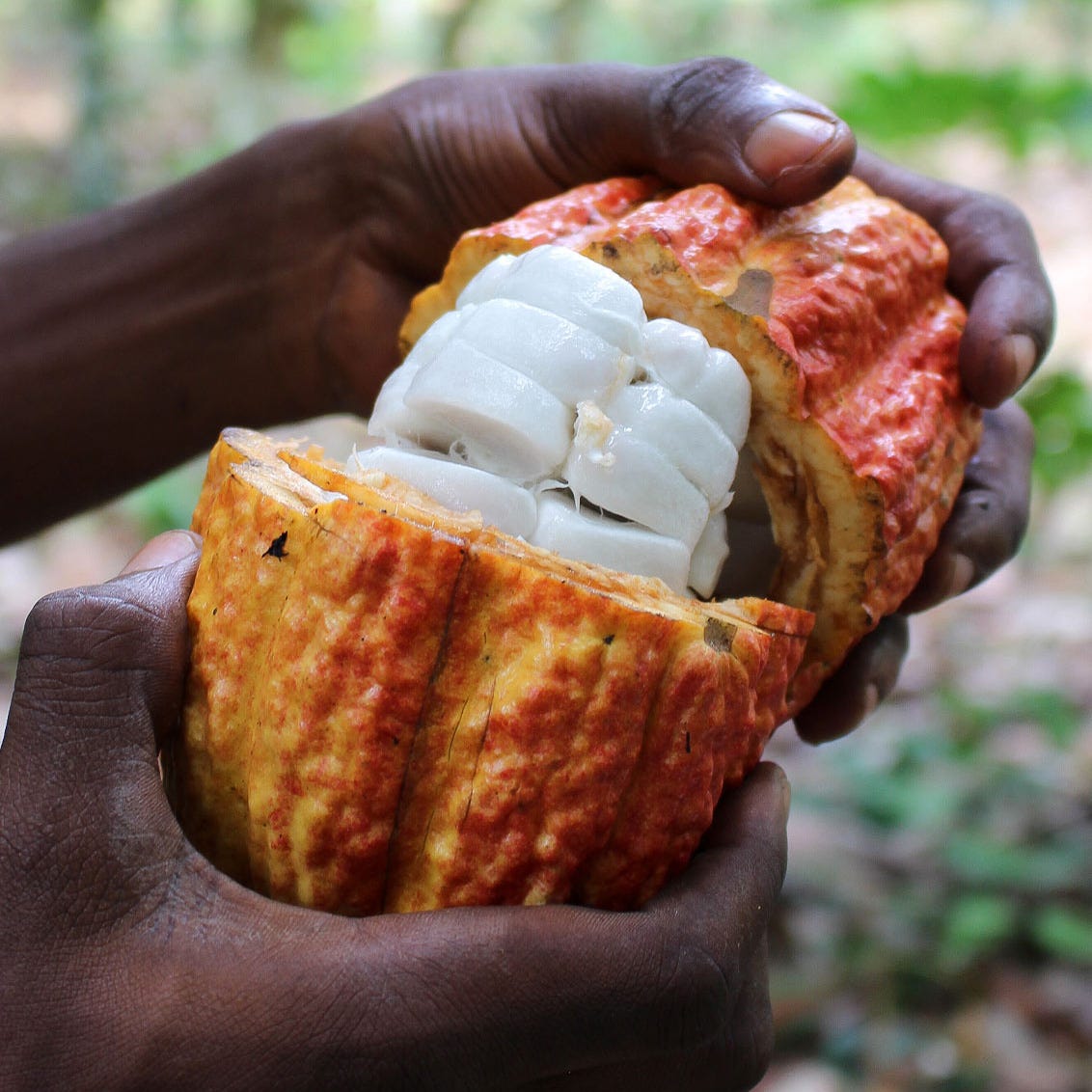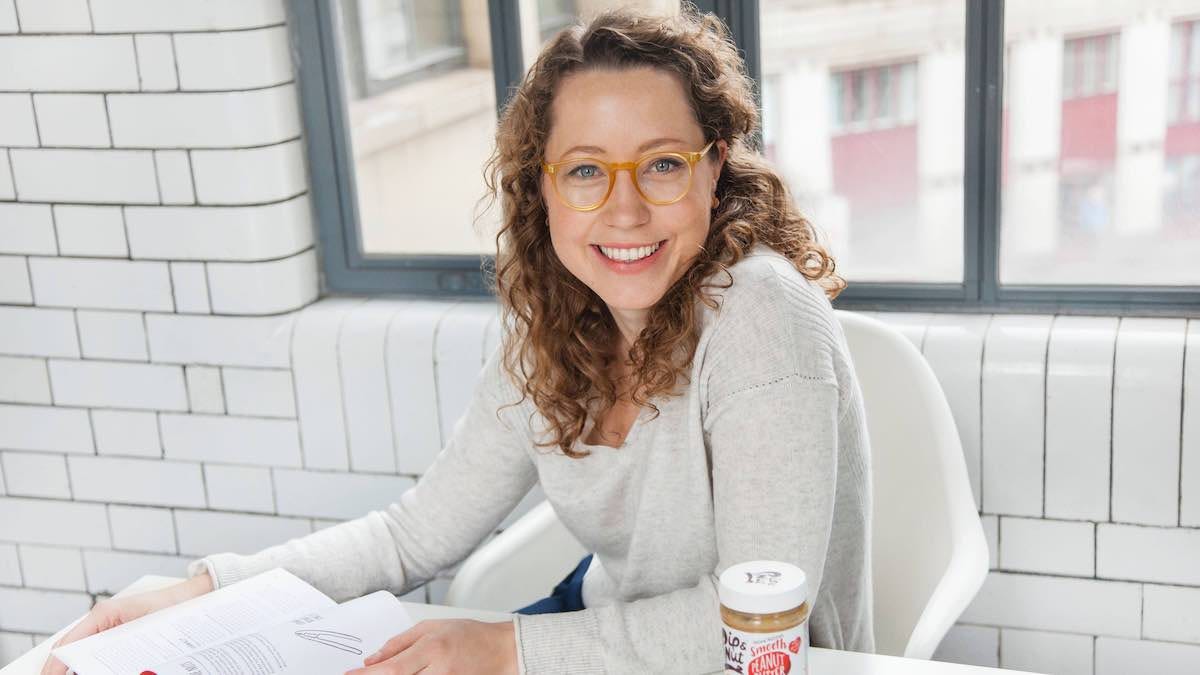🌱 How Conscious Is Your Chocolate?
Featuring Montezuma's, Koa, Lindt & Sprüngli and more...
Happy Friday!
What we’re covering this week:
Montezuma’s mission to reduce the impact of their packaging.
How Koa could sweeten your chocolate supply chain.
In case you missed it: Pip & Nut are taking a crack at Net Zero, featuring Pip Murray, Founder and CEO.
> Good News This Week
🎯 Candy Kittens have partnered with Too Good To Go, so far saving over 800 of their pouches and jars from going to waste.
🎯 Brewgooder's partnership with London Fields Brewery to create a ‘Love Not Waste’ Rice Lager has gone live.
🎯 CanO Water® announced their latest initiative to raise money for Marine Conservation Society, donating 50% of profits from their World Ocean Day campaign.
🎯 Yeo Valley have completed their £1 million solar panel project, installing 3,300 solar panels at their Highbridge site. A further £5 million is due to be spent over the next 5 years to achieve their goal of becoming 50% electricity self-sufficient in the next 10 years.
⭐️ Aldi has introduced packaging made from recycled ocean-bound plastic, preventing a claimed 76 tonnes of plastic entering the ocean each year.
⭐️ AB InBev have developed the lightest beer bottle (for commercial production) in the world. If used on a year’s worth of glass production for AB InBev Europe, it would be the equivalent reduction in CO2 emissions as taking 62,000 cars off the road annually.
⚡️ The Cabinet Office confirmed that by September all prospective suppliers bidding for contracts worth more than £5m a year will need to have committed to delivering on the UK's target of net zero emissions by 2050 and published an accompanying carbon reduction plan. "Firms which fail to do so will be excluded from bidding for the contract", the government stated.
⚡️ In 2020 the global renewable energy industry grew 45% on the previous year - the fastest rate of growth since 1999.
> Click on each link to read more.
> Brand Spotlight
From Bean to Bin: Montezuma’s is Creating More Conscious Chocolate.
Montezuma’s was founded in 2000 in the UK with the aim of creating better, more ethical, chocolate. With strict sourcing criteria for all of their cocoa, in line with certifications such as Rainforest Alliance, UTZ, Soil Association and Cocoa Horizons, the Montezuma’s supply chain promises not to support deforestation, slavery, child labour, exploitive environments and more. Their offices, factory and retail stores all run on 100% renewable electricity, their products are free from palm oil, and they’re currently pending B Corp certification.
As they’ve grown, they’ve also focused their efforts on tackling hotspots within their own business. A key one was their packaging. Last year, Montezuma’s claimed a UK first with entirely recyclable, compostable or biodegradable packaging made from paper or cardboard - a contrast to the conventional all-plastic film wrappers. With the paper composition as 81% paper and 19% plastic, to maintain the strength of the packaging and necessary food safe standards, Montezuma’s packaging is now ‘widely recycled’ and accepted by 75% of UK councils. Any old packaging was shredded and repurposed as filler in Montezuma gift boxes - minimising any potential waste as an outcome of the redesign.
However, with change often comes compromise. Montezuma’s bars have decreased in weight from 100g to 90g in an effort to maintain costs. Managing Director Bruce Alexander explains:
‘This was a really tough decision. Moving to new packaging has meant an increase in costs. We’ve also had an increase in cost in raw materials as well and we had a choice as to whether we put the price up or took the product down.’
To celebrate the launch, Montezuma’s opened a Chocolate Recycling Shop in Covent Garden, London, to educate consumers about the importance of their choices on the ‘end of life’ sustainability of their products. Including consumers in the ‘bean-to-bin’ journey of Montezuma’s chocolate isn’t just clever marketing, it’s also a crucial way of reducing product end of life emissions - a hotspot that many brands struggle with.
Support Montezuma’s mission via their shop:
Haven’t subscribed to Following the Footprints yet?
> Quick Take
Sweeten Your Supply Chain: How Koa is Upcycling Ghana’s Cocoa Waste.
The cocoa bean only forms 25% of the cocoa fruit - approximately the same amount as the pulp, with the husk contributing to the remaining half. What does this mean for chocolate production? On average, 75% of each cocoa fruit is wasted. With an estimated 400 cocoa beans making just 450g of chocolate, and a supply chain tangled in slavery, the social and environmental impact of the sweet treats we know and love is huge.
A solution can be found in Koa. Founded in 2017, Koa is an international organisation bridging Ghana and Switzerland, focused on rescuing cocoa pulp that would otherwise be thrown away. Pulp processing reduces food waste by 40%, whilst increasing the income of 1600 cocoa farmers that Koa works with by 30%. Koa products are 100% traceable, and available to international organisations as juice and dried, ground fruit. Lindt & Sprüngli are one of the latest international food and drinks-based companies to use Koa in one of their products - in their case, a chocolate bar made of 18% cocoa pulp.
Further lessons can be learnt in how Koa manage their resources. Each cocoa fruit is processed using mobile solar energy provided by Namene, ensuring localised carbon neutral production even in the densest parts of the Ghanaian forest. To date, 7,811kWh of solar energy has been harnessed, resulting in 117,857L of pure koa juice being produced.
Cocoa pulp presents a seismic opportunity to decrease food waste whilst fuelling local economies in the rural communities of Ghana. Brands looking to sustainably sweeten their supply chain can help drive this change by partnering with organisations like Koa.
Want to learn more about the cocoa supply chain? We recommend watching ‘Bitter Chocolate’ on Netflix.





